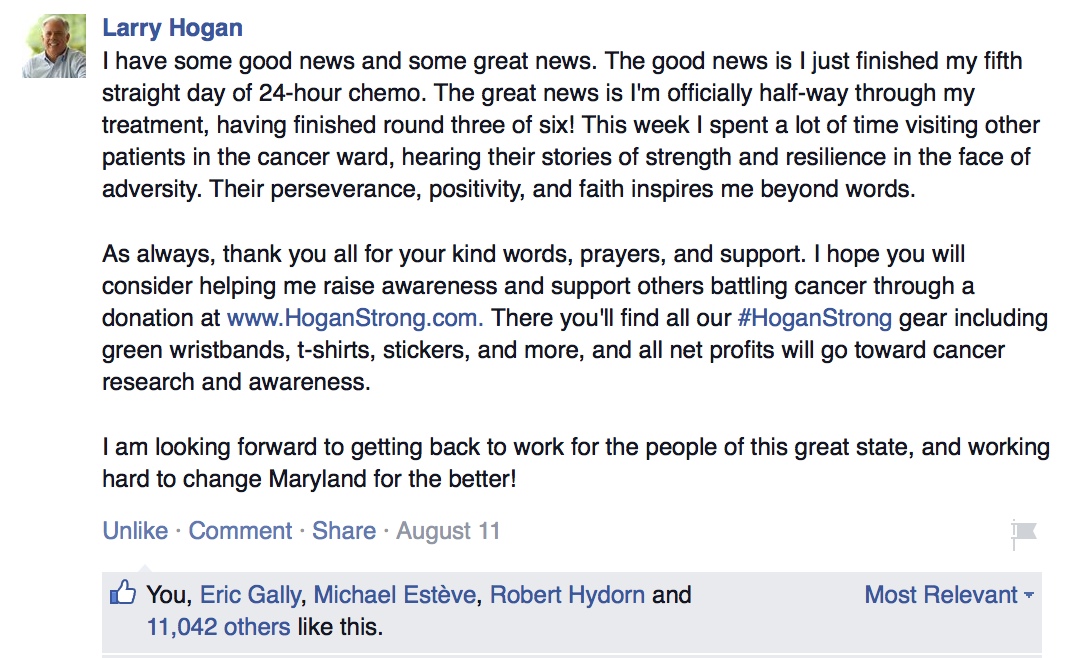Today, I’m pleased to present a guest post by Adam Pagnucco:
Is This Voter Suppression?
Last week, Montgomery County’s Board of Elections voted to close early voting centers in Chevy Chase and Burtonsville and open new ones in Potomac and Brookeville. This prompted charges of voter suppression from Montgomery County Council Member Tom Hucker, who represents Burtonsville and started an online petition to overturn the decision. Hucker points out that the Board’s vote was on party lines, with a Republican majority voting for the change, and that the Burtonsville site has a significant concentration of minority voters. The Board’s Republican President, who ran for County Executive last year, claims that the change was motivated not by politics but by a desire to expand early voting to areas that have not had it.
Who’s right? Let’s look at the data.
First, let’s examine the demographic characteristics of the areas surrounding the early voting sites. For this exercise, I pulled U.S. Census data on zip codes within one mile of each site. Zip codes 20814 and 20815 apply to the Lawton Center in Chevy Chase, 20866 and 20905 apply to the Praisner Center in Burtonsville, 20854 applies to the Potomac Community Recreation Center and 20832 and 20833 apply to the Longwood Community Recreation Center in Brookeville. Following is information on race and income of the residents in these zip codes for the years 2009-2013.
White Non-Hispanic Percentage of Population
Lawton Center, Chevy Chase 77%
Praisner Center, Burtonsville 38
Potomac 68
Brookeville/Olney 64
County Total 48
Black Non-Hispanic Percentage of Population
Lawton Center, Chevy Chase 4%
Praisner Center, Burtonsville 32
Potomac 4
Brookeville/Olney 12
County Total 17
Hispanic Percentage of Population
Lawton Center, Chevy Chase 9%
Praisner Center, Burtonsville 9
Potomac 7
Brookeville/Olney 9
County Total 17
Mean Household Income
Lawton Center, Chevy Chase 189,879
Praisner Center, Burtonsville 127,711
Potomac 256,851
Brookeville/Olney 143,685
County Total 132,222
On these measures, Burtonsville stands out from the other locations. It has a lower income than the other three sites, a lower percentage of non-Hispanic whites and a higher percentage of African Americans. Its African American percentage is nearly double the county’s average. And yet, this site is targeted for closure.
Hucker’s argument is not just rooted in demographics, however. He asserts that the changes are motivated by a desire to advantage Republican voters at the expense of Democrats. Is he right? Let’s look at data on voter registration and actual voting.
For this exercise, I pulled data on voter registration as of August 2015 on all precincts within one mile of each early voting site. Here is the total number of registered voters of all parties near each site.
Registered Voters, All Parties, within one mile
Lawton Center, Chevy Chase 22,012
Praisner Center, Burtonsville 12,833
Potomac 11,649
Brookeville/Olney 13,014
The Lawton Center is within walking distance of Downtown Bethesda, the biggest single employment location in the county, so this statistic actually understates its potential reach. The Praisner Center saw more early votes than any site in the county in the 2014 general election with the exception of Silver Spring. Any prioritization of voter access without regard to party should protect the continued operation of both sites.
Now let’s look at the Republican percentage of registered voters.
Republican Percentage of Registered Voters within one mile
Lawton Center, Chevy Chase 17%
Praisner Center, Burtonsville 16
Potomac 20
Brookeville/Olney 29
County Total 19
In terms of Republican registration percentage, not only do the two new sites exceed the two closed sites, they also exceed the county average.
Registration is only part of the story. Let’s look at the percentage of the vote received by Republican Governor Larry Hogan in last year’s general election in precincts within one mile of each site.
Hogan Percentage of Gubernatorial General Vote within one mile
Lawton Center, Chevy Chase 33%
Praisner Center, Burtonsville 33
Potomac 43
Brookeville/Olney 55
County Total 37
Again, the GOP enjoys a net advantage. The Brookeville area is one of the few parts of the county in which Larry Hogan scored an outright win, and – guess what? – the Republican-majority Board of Elections has given it an early voting site.
U.S. Census and voter data show that the early voting site change on net has improved voting convenience for Republicans and some groups of white and high-income residents while decreasing voting convenience for African Americans and lower-income residents in East County. The voting trends near the sites suggest that this may help Governor Hogan’s performance in the next election.
Is this voter suppression? I guess that depends on your definition of “suppression.” But since U.S. Census and voting data are publicly available – and the latter is held by the Board of Elections – it’s hard to believe that the board was acting blindly. Suppression or not, this has the look of manipulation for partisan gain.


